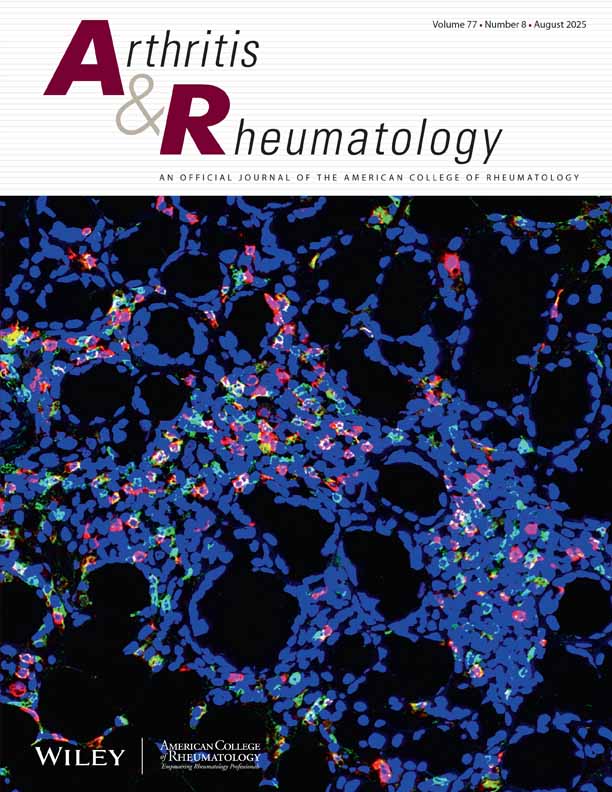The antiinflammatory mechanism of methotrexate depends on extracellular conversion of adenine nucleotides to adenosine by ecto-5′-nucleotidase: Findings in a study of ecto-5′-nucleotidase gene–deficient mice
Abstract
Objective
Evidence from in vitro, in vivo, and clinical studies indicates that adenosine mediates, at least in part, the antiinflammatory effects of methotrexate (MTX), although the biochemical events involved have not been fully elucidated. This study was undertaken to investigate whether MTX exerts antiinflammatory effects in mice that lack ecto-5′-nucleotidase (ecto-5′-NT) (CD73) and are unable to convert AMP to adenosine extracellularly, in order to determine whether adenosine is generated intracellularly and transported into the extracellular space or is generated from the extracellular dephosphorylation of AMP to adenosine.
Methods
Male CD73 gene–deficient mice and age-matched wild-type mice received intraperitoneal injections of saline or MTX (1 mg/kg/week) for 5 weeks. Air pouches were induced on the back by subcutaneous injection of air; 6 days later, inflammation was induced by injection of carrageenan.
Results
Fewer leukocytes, but higher levels of tumor necrosis factor α (TNFα), accumulated in the air pouches of vehicle-treated CD73-deficient mice compared with those of wild-type mice. As expected, MTX treatment reduced the number of leukocytes and TNFα levels in the exudates and increased exudate adenosine concentrations in wild-type mice. In contrast, MTX did not reduce exudate leukocyte counts or TNFα levels or increase exudate adenosine levels in CD73-deficient mice.
Conclusion
These results demonstrate that the antiinflammatory actions of MTX are mediated, at least in part, by increased release of adenine nucleotides that are hydrolyzed extracellularly to adenosine via an ecto-5′-NT–dependent pathway.




